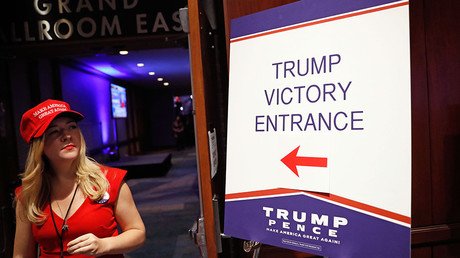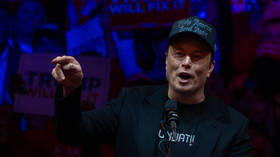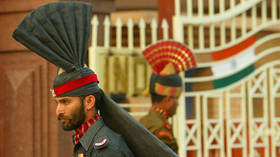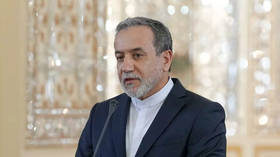‘Putin’s not on our team’: Obama urges Trump to trust US intelligence community
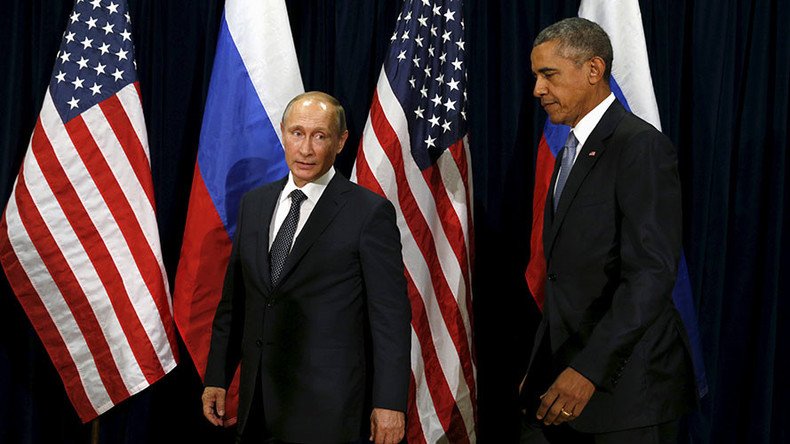
Outgoing US President Barack Obama has warned Americans and his successor Donald Trump that Vladimir Putin is an “adversary” who should never be trusted over the US intelligence community.
Speaking to ABC's George Stephanopoulos after the release of the intelligence community’s declassified assessment of the alleged Russian interference in the US presidential race, Obama again reiterated his firm belief that Moscow was somehow involved in propelling Trump into the Oval Office.
ODNI report on Russian meddling is ‘a joke’ – NSA whistleblower [VIDEO] https://t.co/HLtKHtK30u@ManilaChan
— RT America (@RT_America) January 7, 2017
“I think that what is true is that the Russians intended to meddle and they meddled. And it could be another country in the future,” President Obama told the host of ABC’ ‘This Week’ which aired in the US on Sunday.
The outgoing president spoke of a need to unite the country amidst the cyber hysteria that has split the country over the extent of Moscow’s influence in the US presidential race.
Trump who somewhat criticized the US intelligence report insisted that the cyberattack and the subsequent leaks from the DNC server had “absolutely no effect on the outcome of the election,” while Obama disagreed.
“One of the things that I've urged the president-elect to do is to develop a strong working relationship with the intelligence community,” Obama said. “I think it's important that Congress, on a bipartisan basis, work with the next administration, looking forward to make sure that this kind of influence is minimized.”
“We have to remind ourselves we’re on the same team. Vladimir Putin’s not on our team,” Obama added. “If we get to a point where people in this country feel more affinity with a leader who is an adversary and view the United States and our way of life as a threat to him, then we’re gonna have bigger problems than just cyber hacking.”
The departing president said that he is “concerned” about the degree of US reporting following the release of the intelligence community assessment. It appears to him that some politicians and reporters “seem to have more confidence in Vladimir Putin than fellow Americans because those fellow Americans are Democrats.”
“That cannot be,” Obama stressed.
Report claimed #Putin ‘ordered an influence campaign' to 'denigrate Secretary #Clinton and harm her electability’ https://t.co/GTHIpBzCXtpic.twitter.com/NWDu8iwnas
— RT America (@RT_America) January 6, 2017
When asked if he has underestimated Putin personally, Obama admitted that he has underestimated the American public’s exposure to alternative points of view.
“I don't think I underestimated him, but I think that I underestimated the degree to which, in this new information age, it is possible for misinformation, for cyber hacking and so forth to have an impact on our open societies, our open systems, to insinuate themselves into our democratic practices in ways that I think are accelerating,” he said.
Obama then attempted to export US anti-Russia hysteria, by warning Germany and France, who have elections coming up this year, to be weary of the “Russian hand” in their political process.
“And so part of the reason that I ordered this report was not simply to re-litigate what happened over the last several months, but rather to make sure that we understand this is something that Putin has been doing for quite some time in Europe, initially in the former satellite states where there are a lot of Russian speakers, but increasingly in Western democracies,” Obama said.
On Friday, the Office of the Director of National Intelligence (ODNI) released the report called “Assessing Russian Activities and Intentions in Recent US Elections”.
Presented in response to growing skepticism over “Russian hacking” claims, the report again offered no hard or technical evidence, instead accusing Moscow and RT in particular of trying to “influence” American public opinion.
